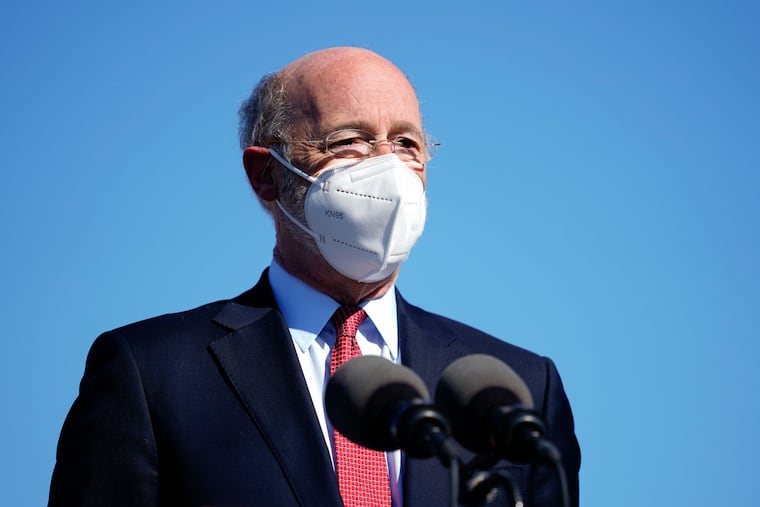More COVID-19 rental assistance is coming to tenants in Pennsylvania and New Jersey
As tenants continue to struggle with the financial hardships the pandemic has caused, they soon will be able to access hundreds of millions of dollars in additional federal rental assistance.

Tenants in Pennsylvania and New Jersey who are struggling to make rent and utility payments can apply for a new round of hundreds of millions of dollars in federal rental assistance.
Tenants must meet income requirements, be experiencing a pandemic-related financial hardship, and show that they are at risk of housing instability or homelessness. Eligible tenants can receive up to 12 months of assistance and can use funds for past-due rent dating to March 2020 and for future rent. Both tenants and landlords can apply. People who are homeless also can apply for funds in New Jersey.
Most Pennsylvania counties are using the state’s online application system, which opened Thursday, but some — including Philadelphia and its collar counties — are using their own systems.
Philadelphia plans to open applications for the newest iteration of rental assistance on phlrentassist.org before March 31. Landlords can preregister on the site to speed up the process.
Here’s how to apply for assistance in suburban counties:
In Bucks County, go to www.buckscounty.org/renthelp.
In Chester County, call 211.
In Montgomery County, call 211 or text your zip code to 898-211.
Delaware County plans to launch its program in the next couple of weeks. Residents can preregister at https://delco-era.com/.
“This new round of funding will allow us to expand on our previous support to renters and landlords experiencing financial hardship due to the COVID-19 pandemic,” Kenneth E. Lawrence Jr., vice chair of the Montgomery County Board of Commissioners, said in a statement. “Through this program, we can provide housing stability to hundreds of low- and moderate-income Montgomery County residents at risk of eviction and homelessness.”
» READ MORE: The inside story of how Pennsylvania failed to deliver millions in coronavirus rent relief
Pennsylvania’s new program is very different from the state’s earlier rent relief effort, said Liz Tilahun, deputy secretary of the Office of Income Maintenance at the state Department of Human Services. It offers assistance for a longer period of time, without any hard-and-fast caps and with more ways to qualify.
“Really, the biggest hurdle is just in the size and scope of the program,” she said. State officials encouraged tenants to apply as soon as possible. The department expects funds to run out by September.
New Jersey residents can apply for the second phase of the state’s rental assistance program starting at 9 a.m. Monday at njdca.onlinepha.com or can call 609-490-4550 for help. More than 15,000 households received assistance in the first phase.
» READ MORE: Rent has increased the most in the least expensive areas, Zillow report finds
David Brogan, executive director of the New Jersey Apartment Association, said that he and his members are encouraged by the additional rental assistance funds and that it is “imperative” that the state disburse the money as soon as possible, pointing out that many landlords have gone a year without rent. But, he said, the income requirements for rental assistance leave out middle-class residents who also lost jobs.
“Decision makers need to recognize that failing to provide necessary rental assistance to those in need will have a domino effect on tenants, landlords, homeowners, municipalities, and the state,” Brogan said in a statement. “The multifamily industry pays over a billion dollars a year in property taxes.”
Staff writer Charlotte Keith contributed to this article.